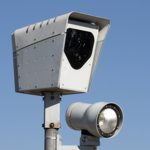How Does the NSW Demerit Point Suspension Scheme Work?

At around 1 am on Christmas day this year, NSW Central West highway patrol officers pulled over a Nissan Skyline on the Newell Highway near Parkes to randomly breathalyse the driver. However, on checking the details of his licence, officers found it was suspended.
In fact, the 32-year-old Wagga Wagga man’s licence is reportedly suspended until September 2046. So, he was promptly charged with driving a motor vehicle during a licence suspension period. And he’s now set to appear before Parkes Local Court on 3 February next year.
While most NSW citizens won’t have to deal with a situation where their licence is suspended for a quarter century, they’re still confronted with the possibility that via the NSW demerit point system, their licence is suspended for a period of months due to traffic infringements.
If you do get to the stage where your driver demerit points add up to an amount that forces an automatic licence suspension, then you’re in the same boat as the Wagga Wagga man, and can face serious charges for driving whilst your licence is on hold.
And while you’d be hard pressed to meet a NSW driver who’s unaware of the demerit point system, many living in the premier state don’t really understand how it works. So, Sydney Criminal Lawyers thought it would be a good time to fill them in on the details.
How does the point system work?
In this state, the national demerit point system is administered by NSW Roads and Maritime Services (RMS). And as the government department puts it, the “scheme is designed to encourage safe and responsible driving” via a point system that accompanies financial penalties.
A NSW driver begins with no demerit points. However, if they commit enough traffic-related offences within a three year period, they can accumulate points to push them over the threshold, which results in an automatic licence suspension or non-renewal period.
Different demerit points thresholds apply to the various types of licences. A regular unrestricted licence holder reaches their limit at 13 points, while a professional driver’s peak is 14. A provisional P2 plater runs into problems at 7 points, while a P1 plater and learner have a limit of 4 points.
In the case of a licence suspension or refusal to renew, RMS must serve the driver with a notice. And the three year period these points accumulate over is calculated between the dates when offences are committed. So, your most recent offence marks the last day of the 36 month period.
How long can I be suspended for?
Differing suspension timeframes also apply. For unrestricted drivers 13 to 15 points result in a 3 month licence suspension, while 16 to 19 points lead to a 4 month ban from getting behind the wheel. And 20 points or more will see a driver suspended for 5 months.
For learners and provisional licence holders, there’s a standard 3 month suspension period.
RMS can refuse to renew a licence, when a driver has exceeded their point threshold, or if they’ve committed a serious speeding offence. The period that the refusal applies to is calculated on the same basis as the demerit licence suspension periods are.
Unrestricted licence holders who exceed their demerit point threshold twice in a five year period must retake and pass the official driver knowledge test and complete a driver education course, before their licence is returned after the second occasion it’s withdrawn.
Provisional P2 licensed drivers who receive a suspension must spend an extra 6 months on their P2 plates, in addition to the normal 24 months. And an extra 6 month period is added every time a P2 driver is suspended whilst on that licence type.
Can I appeal a licence suspension?
Unrestricted NSW driver licence holders who pass their demerit point threshold and are about to have their licence suspended may be eligible for a 12 month good behaviour period. If a driver wants to pursue this avenue, they can do so by applying online before the suspension date kicks in.
If a driver is successful in this process, it means their licence suspension is withdrawn, and for a 12 month period, they’re allowed to continue driving under the proviso that they don’t accumulate 2 or more demerit points over that time.
A driver who does accumulate 2 or more points whilst on a good behaviour period, automatically has their driver licence suspended for double the period that it was going to be suspended for in the first place.
School zones and double demerits
Certain traffic offences attract additional demerit points if they’re committed within school zones, which are designated 40 km/h road areas that operate near schools. These zones are in force on all days, except for weekends and public holidays.
There are also special times of the year that are declared double demerit point periods. These usually occur around public holidays, such as long weekends, Christmas and New Year’s, as well as the Easter period.
During these times, double demerits begin applying at midnight of the day they’re imposed and finish at midnight of the day they cease. And drivers are hit up for double demerits over offences involving speeding, seatbelts, motorcycle helmets and mobile phones.
What if I do drive whilst suspended?
A citizen caught driving during a period when their licence is suspended has committed an offence under section 54 of the Road Transport Act 2013 (NSW), which stipulates that it’s a crime to drive or make a licence application whilst disqualified or their licence is suspended or cancelled.
When a driver is convicted of this crime and it’s their first major traffic offence in five years, they’re subject to a maximum penalty of a $3,300 fine and/or 6 months imprisonment. But, if it’s a second or subsequent offence, the maximum is a $5,500 fine and/or 12 months behind bars.
Of course, if you want to challenge an alleged driving offence, or you’re facing a court appearance in relation to driving whilst your licence has been suspended, it’s always best to contact an experienced traffic lawyer as soon as possible.
Going to court for a traffic offence?
If you are going to court for a traffic offence, call or email Sydney Criminal Lawyers anytime to arrange a free first consultation with an experienced, specialist traffic lawyer who will accurately advise you of your options, the best way forward, and fight for the optimal outcome in your specific situation.








